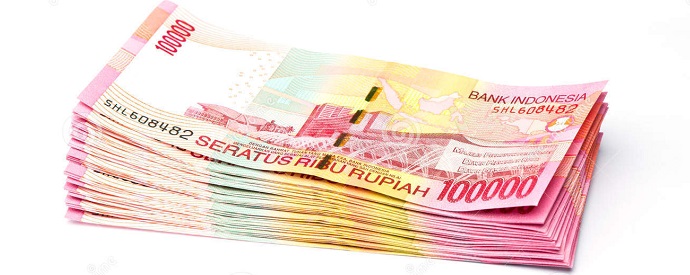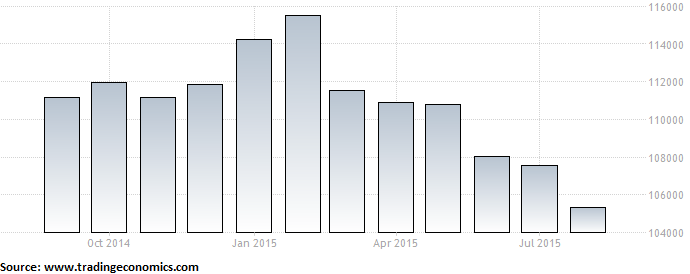What are the Domestic Factors that Cause Weaker Indonesian Assets?
Apart from external factors (China’s weak manufacturing activity and persistent uncertainty about the timing of higher US interest rates) that plague Indonesian assets today, there are also domestic factors that push Indonesian stocks and the rupiah into the red. These domestic factors include Indonesia’s downgraded economic growth forecasts and the central bank’s downgraded rupiah outlook. Meanwhile, Indonesia’s foreign exchange reserves - used to defend the rupiah - have declined further.
Yesterday, the Asian Development Bank (ADB) announced it had cut its forecast for Indonesia's economic growth in 2015 from 5.5 percent (y/y) to 4.9 percent (y/y) and in 2016 from 6.0 percent (y/y) to 5.4 percent (y/y) on softer economic growth in China as well as sluggish growth in industrialized economies. On the same day it was also announced that Indonesia’s House of Representatives’ Commission XI (which oversees finance and banking) agreed to the government’s proposal to cut the GDP growth target (set in the Revised 2016 State Budget) from 5.5 percent (y/y) to 5.3 percent (y/y).
Meanwhile, the central bank of Indonesia (Bank Indonesia) announced that (during the budget talks with the House of Representatives) it expects the rupiah to trade in the range of IDR 13,700-13,900 per US dollar in 2016, weaker than its earlier forecast of IDR 13,400-13,900 per US dollar.

Bank Indonesia also said that the foreign exchange reserves have declined further. Unofficial Bank Indonesia data say that the nation’s forex reserves fell to USD $103 billion in September from USD $105.3 billion at the end of August (and far from the peak of USD $115.5 billion in February 2015). These reserves have been falling as the central bank uses part of the foreign exchange reserves to defend the rupiah. However, despite Bank Indonesia support the rupiah’s drop persists amid looming higher US interest rates and China’s hard landing. However, Bank Indonesia said the current level of forex reserves is still safe as it covers nearly seven month of imports.
Foreign Exchange Reserves Indonesia (in USD million):

By 15:08 pm local Jakarta time, the benchmark Jakarta Composite Index had fallen 2.26 percent to 4,245.66 points, while the rupiah had depreciated 0.80 percent to IDR 14,668 per US dollar (Bloomberg Dollar Index). Earlier today the rupiah touched beyond the IDR 14,700 per US dollar level several times.
Bank Indonesia's benchmark rupiah rate (Jakarta Interbank Spot Dollar Rate, abbreviated JISDOR) depreciated 0.95 percent to IDR 14,623 per US dollar on Wednesday (23/09), a fresh 17-year low.
Indonesian Rupiah versus US Dollar (JISDOR):
| Source: Bank Indonesia